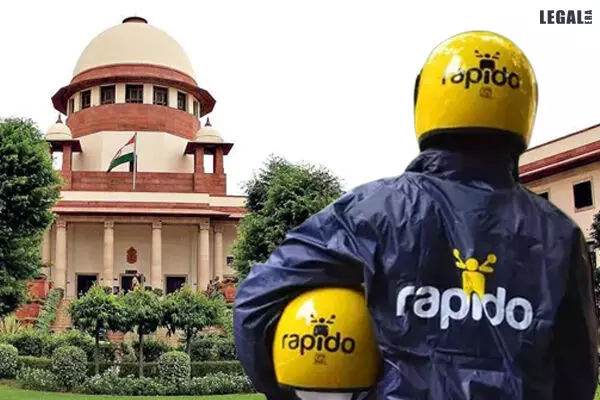- Home
- News
- Articles+
- Aerospace
- Artificial Intelligence
- Agriculture
- Alternate Dispute Resolution
- Arbitration & Mediation
- Banking and Finance
- Bankruptcy
- Book Review
- Bribery & Corruption
- Commercial Litigation
- Competition Law
- Conference Reports
- Consumer Products
- Contract
- Corporate Governance
- Corporate Law
- Covid-19
- Cryptocurrency
- Cybersecurity
- Data Protection
- Defence
- Digital Economy
- E-commerce
- Employment Law
- Energy and Natural Resources
- Entertainment and Sports Law
- Environmental Law
- Environmental, Social, and Governance
- Foreign Direct Investment
- Food and Beverage
- Gaming
- Health Care
- IBC Diaries
- In Focus
- Inclusion & Diversity
- Insurance Law
- Intellectual Property
- International Law
- IP & Tech Era
- Know the Law
- Labour Laws
- Law & Policy and Regulation
- Litigation
- Litigation Funding
- Manufacturing
- Mergers & Acquisitions
- NFTs
- Privacy
- Private Equity
- Project Finance
- Real Estate
- Risk and Compliance
- Student Corner
- Take On Board
- Tax
- Technology Media and Telecom
- Tributes
- Viewpoint
- Zoom In
- Law Firms
- In-House
- Rankings
- E-Magazine
- Legal Era TV
- Events
- Middle East
- Africa
- News
- Articles
- Aerospace
- Artificial Intelligence
- Agriculture
- Alternate Dispute Resolution
- Arbitration & Mediation
- Banking and Finance
- Bankruptcy
- Book Review
- Bribery & Corruption
- Commercial Litigation
- Competition Law
- Conference Reports
- Consumer Products
- Contract
- Corporate Governance
- Corporate Law
- Covid-19
- Cryptocurrency
- Cybersecurity
- Data Protection
- Defence
- Digital Economy
- E-commerce
- Employment Law
- Energy and Natural Resources
- Entertainment and Sports Law
- Environmental Law
- Environmental, Social, and Governance
- Foreign Direct Investment
- Food and Beverage
- Gaming
- Health Care
- IBC Diaries
- In Focus
- Inclusion & Diversity
- Insurance Law
- Intellectual Property
- International Law
- IP & Tech Era
- Know the Law
- Labour Laws
- Law & Policy and Regulation
- Litigation
- Litigation Funding
- Manufacturing
- Mergers & Acquisitions
- NFTs
- Privacy
- Private Equity
- Project Finance
- Real Estate
- Risk and Compliance
- Student Corner
- Take On Board
- Tax
- Technology Media and Telecom
- Tributes
- Viewpoint
- Zoom In
- Law Firms
- In-House
- Rankings
- E-Magazine
- Legal Era TV
- Events
- Middle East
- Africa
Rapido challenges Bombay High Court ban on services in Maharashtra; knocks Supreme Court door

Rapido challenges Bombay High Court ban on services in Maharashtra; knocks Supreme Court door
The matter will be heard on 23 January
The bike taxi aggregator company, Rapido has moved the Supreme Court challenging the directive of the Bombay High Court to immediately stop operations in Maharashtra since it did not have a license to operate bike taxis or rickshaw services.
The bench headed by Chief Justice of India DY Chandrachud has agreed to hear the matter on 23 January.
Appearing for Rapido, senior advocate Mukul Rohatgi told the court, "I have thousands of employees. I was asked to submit that we will stop operations. This is urgent.... We are like Uber only. This court had protected Uber also."
To this, CJI Chandrachud responded, "Tell the high court we will hear the matter."
Rapido had recently given an undertaking before the high court that it would suspend all its services in Maharashtra till January 20. It was done after the court warned the company that if it did not suspend its services immediately, directions would be issued to permanently prohibit the company from getting a license.
Since no licensing regime exists in Maharashtra regarding bike taxis, the bike aggregator also does not hold a license for operating in the state.
In a December 2022 communication, the state government had said there was no policy on licensing and fare structure of bike taxis. That is why Rapido was refused a license by the government.
The company then moved the Bombay High Court challenging the government's refusal to grant a license to the two-wheeler bike taxi aggregator.
The high court took a favourable view of Rapido's predicament and asked the state to frame a policy for licensing such aggregators. Early this year, it asked the state to consider the benefits of having two-wheeler transport and suggested framing a policy.
However, on noting that Rapido was continuing to ply its taxis without a license, the court warned it of adverse action if the same was not halted.
Left with no choice, Rapido told the high court the services were halted.



